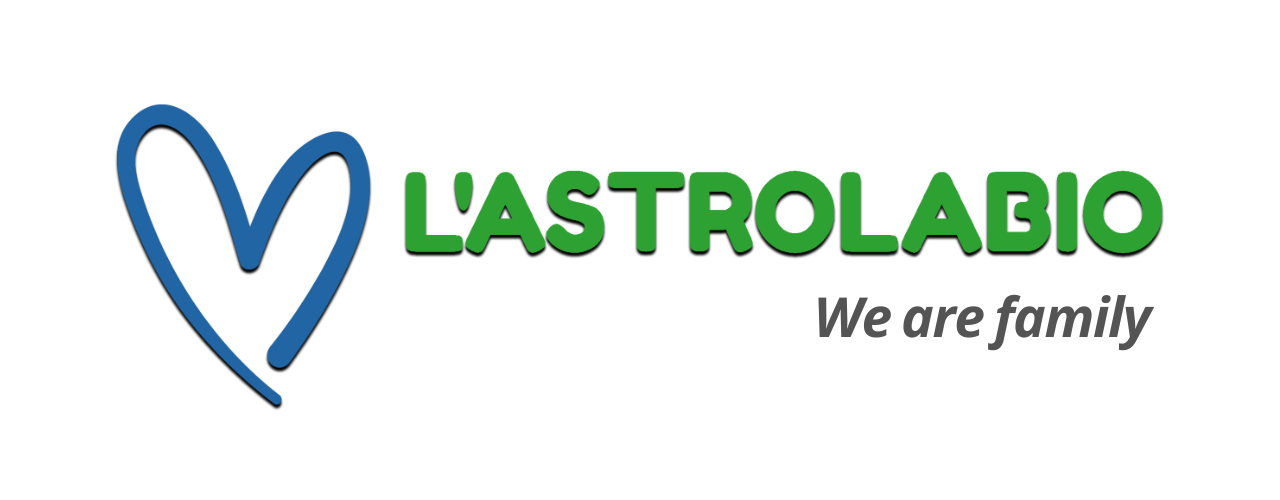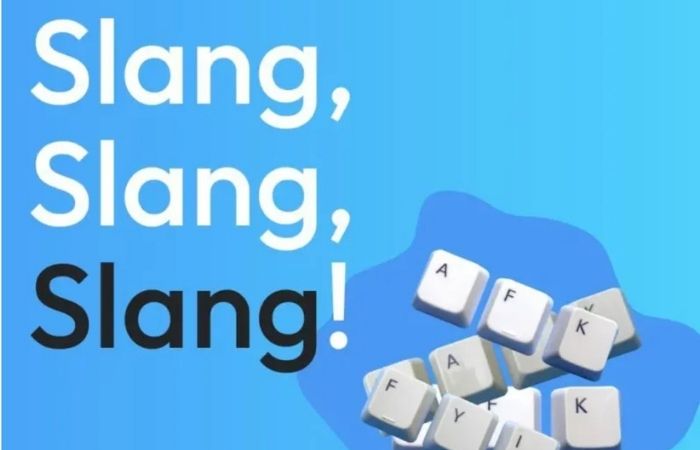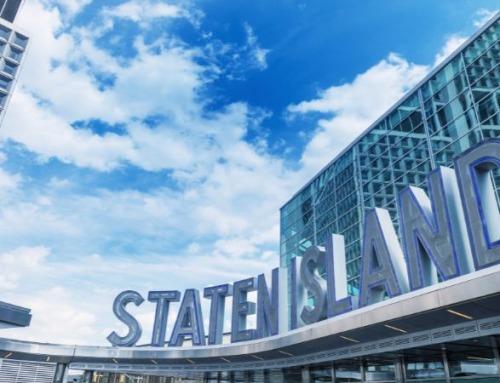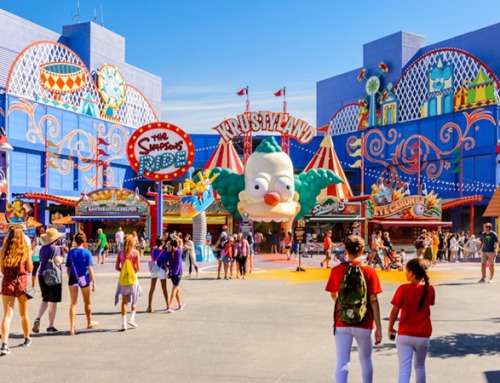Talking like a local will be easier than you think when you learn American slang before your trip to the states!
If you travel from New York City to Texas, or make a stop in Boston, you’ll notice that every region has its own distinctive accent and expressions. Still, there are a few American slang terms you’ll hear almost everywhere. They’re the heart of casual American conversation and a huge part of the culture.
When you first arrive in the United States, hearing people speak in slang can be confusing. But don’t worry, you’ve got plenty of time to get the hang of it before your trip. Knowing a few key phrases will help you avoid awkward misunderstandings and connect more naturally with locals.
English itself is huge and flexible, which can make it tricky for non-native speakers. From spelling and grammar to pronunciation quirks, it’s a language shaped by different cultures and regions. Slang adds yet another layer of fun and creativity to it all.
Every area of the country has its own cultural rules and expressions. That’s what makes slang such an important — and entertaining — part of learning American English.
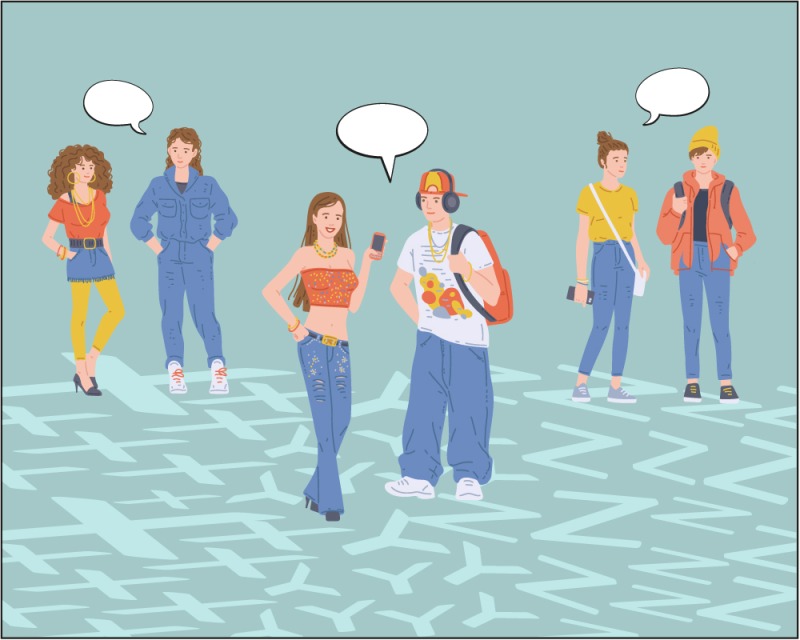
Indice dei contenuti
Everyday American slang you’ll want to remember
To make your study holiday in the USA even more enjoyable, here’s a quick look at some of the most common slang phrases you’ll hear in everyday conversations.
Learning them now will help you sound more natural, make friends faster, and understand what’s going on around you.
1 – Brownie points
This phrase has nothing to do with dessert, but everything to do with social rewards. When you earn brownie points, it means you’ve done something nice that gets you informal credit, like when you help your host family clean the kitchen without being asked, or compliment someone’s presentation in class.
It’s not a real score system, but it’s part of the unwritten social game. You’ll often hear it used jokingly: “I brought my teacher a coffee today — I’m just trying to earn some brownie points.”
It’s a playful, light-hearted way to acknowledge good behaviour or clever flattery.
2 – Scoot over
Imagine stepping onto a crowded subway or squeezing into a packed park bench. Someone smiles at you and says, “Hey, could you scoot over?”
It’s the American way to say “move a little, please.” Friendly and often followed by a smile or laugh.
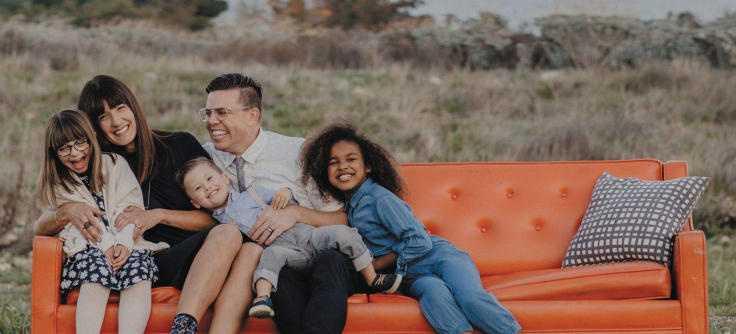
You’ll sometimes hear the variation “scooch over,” which sounds even softer and friendlier. Both mean the same thing, shift a little to make room for someone else.
It’s a tiny phrase that says a lot about American communication: direct, polite, and practical.
3 – Cut to the chase
Americans value efficiency. So when someone says “cut to the chase,” they’re asking you to skip the details and get straight to the main point.
The expression actually comes from early Hollywood films. Silent movies often ended with a thrilling chase scene, and audiences would grow impatient with the slow build-up. Editors and directors would say, “Cut to the chase!” meaning, get to the exciting part.
So if your teacher interrupts a long story with, “Alright, let’s cut to the chase,” they’re not being rude, they just want clarity.
4 – Not a big fan
If you don’t like something but want to sound polite, this is the perfect phrase.
Imagine you’re offered a peanut butter sandwich or asked if you like country music. You can simply reply, “I’m not a big fan.”
It’s direct but gentle. Americans often use understatement to keep things friendly instead of saying, “I hate it,” they soften it with “not a big fan.”
It’s also a way to express mild disagreement without creating tension, making it a great phrase to use in everyday social settings.
5 – To pig out

This one’s fun and very American. To pig out means to eat a lot enthusiastically, maybe even messily, usually in a relaxed, social situation.
You might hear: “We totally pigged out on burgers after the game.”
It’s not meant to be rude. In fact, it’s often said with affection, like a confession after a great meal. The imagery comes from the idea of pigs eating with gusto — not the most elegant image, but a memorable one!
6 – To screw up something
When something goes wrong, Americans are quick to admit it with humour: “I totally screwed up.”
It means you made a mistake, often by accident. For example, you might forget an appointment, spill coffee on your laptop, or submit the wrong homework file, all classic screw-ups.
It’s a phrase that reflects one of the best aspects of American culture: people aren’t afraid to acknowledge failure. Saying “I screwed up” is a way to take responsibility, laugh it off, and move on.
7 – To take a rain check
If someone invites you somewhere and you can’t make it, you can say, “Can I take a rain check?”
It’s a kind way to say “Not now, but another time.”
The expression dates back to 19th-century baseball games. When matches were cancelled due to rain, ticket holders received a “rain check” — a voucher to return when the game was rescheduled.
Today, it’s used in everyday life: “I’d love to come to dinner, but I have an exam tomorrow. Can I take a rain check?”
It shows interest, not rejection, a very handy distinction when making friends.
8 – To jack up the prices
If you hear someone complain that a store “jacked up their prices,” it means they raised their prices sharply, usually in an unfair or opportunistic way. “They always jack up the hotel rates during spring break.”
The phrase comes from the idea of using a jack to lift something up — in this case, the cost. It’s especially common when people talk about travel, tickets, or rent.
You’ll sound like a real local if you can use it naturally in conversation, especially when discussing life’s expensive surprises.
9 – To drive someone up the wall
This expression perfectly captures frustration. If something drives you up the wall, it means it’s irritating you to the point of madness.
“The sound of that dripping tap is driving me up the wall.”
It’s a vivid mental image — someone so annoyed that they’d rather climb a wall than stay in the situation. You can use it for people, noises, or even homework.
10 – To ride shotgun
If you’re heading on a road trip with friends and someone yells, “I call shotgun!” they’re claiming the front passenger seat.
The phrase comes from the Wild West, when the person sitting next to the driver of a stagecoach literally carried a shotgun for protection. Today, it’s just about seating preference, not security!
It’s one of those fun traditions that show how America’s history still echoes in modern slang.
11. Hang Out
To hang out means to spend relaxed, unplanned time with someone. It’s casual, friendly, and deeply American.
“We’re just hanging out at the mall.”
It implies easy company with no schedule, no stress, just people enjoying each other’s presence. You’ll hear it constantly, because Americans value informality and spontaneity in their social lives.
12. Cram
Every student knows this one. To cram means to study intensely right before a test, often staying up late and absorbing as much as possible.
“I crammed all night for my history exam.”
It’s a survival word in any academic environment, but it also says a lot about student life. It’s fast-paced, determined, and fuelled by caffeine.
13. Couch Potato
A couch potato is someone who spends a lot of time lounging and watching TV, usually with snacks in hand.
The phrase emerged in the 1970s, combining the image of a potato (stationary and round) with a couch, a humorous nod to laziness.
“After finals week, I turned into a total couch potato.”
It’s often said jokingly, especially after a busy period when relaxation is well-deserved.

14. Cool as a Cucumber
If someone remains calm and collected while everyone else is panicking, they’re cool as a cucumber.
Cucumbers are literally cool to the touch, even in warm weather, hence the phrase.
“Everyone was nervous before the presentation, but Maria stayed cool as a cucumber.”
It’s a friendly, slightly old-fashioned compliment that still pops up in daily speech.
15. Crash
This slang has several meanings. If someone says they’re going to crash, it often means they’re heading to bed, suddenly and completely.
“I’m so tired, I’m just going to crash.”
You can also crash at someone’s place (sleep there) or crash a party (show up uninvited). The meaning depends on context, but it always conveys suddenness or informality.
Other everyday American slang you’ll hear everywhere
American teenagers love slang, and many of their favourite words have gone global. You probably already recognise a few of these:
-
A party animal: someone who loves to party
-
It’s no biggie: it’s not a big problem
-
A bummer: a disappointment
-
Something sucks / to suck at something: something is bad / to be bad at something
-
A chicken: a coward
-
Booze: alcohol
-
Bae: short for “before anyone else,” meaning your loved one or best friend
-
Bro: short for brother, a way to refer to a friend
-
To have a crush on someone: to like someone romantically
-
An epic fail: a total disaster
-
To be hyped: to be really excited about something
Get ready for your study holiday in the USA with American slang!
American English isn’t harder than British English, but slang differences between the two countries can be full of surprises. Start learning these phrases now, and you’ll find it much easier to chat with locals, understand jokes, and feel like part of the group.
Your study holiday in the United States isn’t just a chance to improve your language skills, it’s an opportunity to live like an American, discover a new culture, and pick up the expressions that make conversations come alive.
So grab your notebook, practise these phrases, and get ready for the adventure of a lifetime. Before long, you won’t just speak English, you’ll actually sound like you belong.
